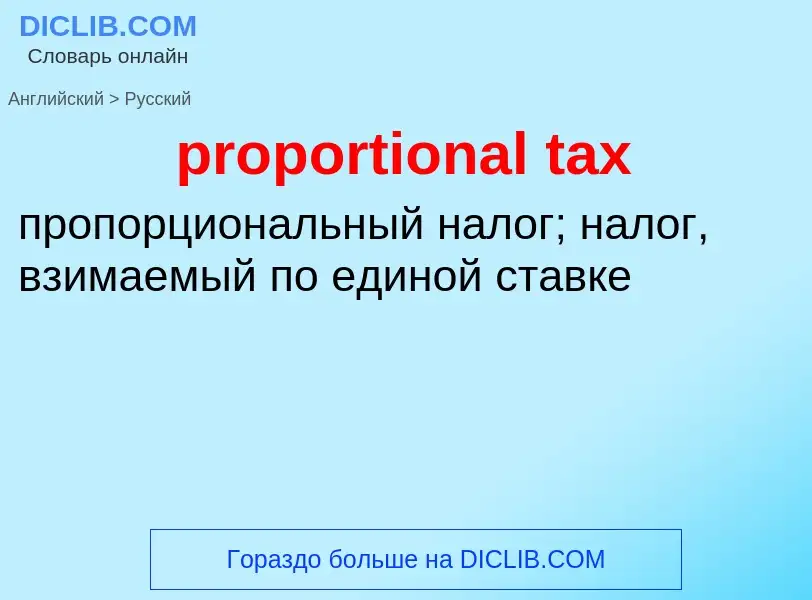Translation and analysis of words by ChatGPT artificial intelligence
On this page you can get a detailed analysis of a word or phrase, produced by the best artificial intelligence technology to date:
- how the word is used
- frequency of use
- it is used more often in oral or written speech
- word translation options
- usage examples (several phrases with translation)
- etymology
proportional tax - translation to russian
['sintæks]
разговорное выражение
налог «на пороки» (на табак, алкогольные напитки, азартные игры и т. п.)
собирательное выражение
налог на табак, алкогольные напитки, азартные игры и т. п.
Wikipedia
A proportional tax is a tax imposed so that the tax rate is fixed, with no change as the taxable base amount increases or decreases. The amount of the tax is in proportion to the amount subject to taxation. "Proportional" describes a distribution effect on income or expenditure, referring to the way the rate remains consistent (does not progress from "low to high" or "high to low" as income or consumption changes), where the marginal tax rate is equal to the average tax rate.
It can be applied to individual taxes or to a tax system as a whole; a year, multi-year, or lifetime. Proportional taxes maintain equal tax incidence regardless of the ability-to-pay and do not shift the incidence disproportionately to those with a higher or lower economic well-being.
Flat taxes are defined as levying a fixed (“flat”) fraction of taxable income. They usually exempt from taxation household income below a statutorily determined level that is a function of the type and size of the household. As a result, such a flat marginal rate is consistent with a progressive average tax rate. A progressive tax is a tax imposed so that the tax rate increases as the amount subject to taxation increases. The opposite of a progressive tax is a regressive tax, where the tax rate decreases as the amount subject to taxation increases.
The French Declaration of the Rights of Man and of the Citizen of 1789 proclaims:
A common contribution is essential for the maintenance of the public forces and for the cost of administration. This should be equitably distributed among all the citizens in proportion to their means.

